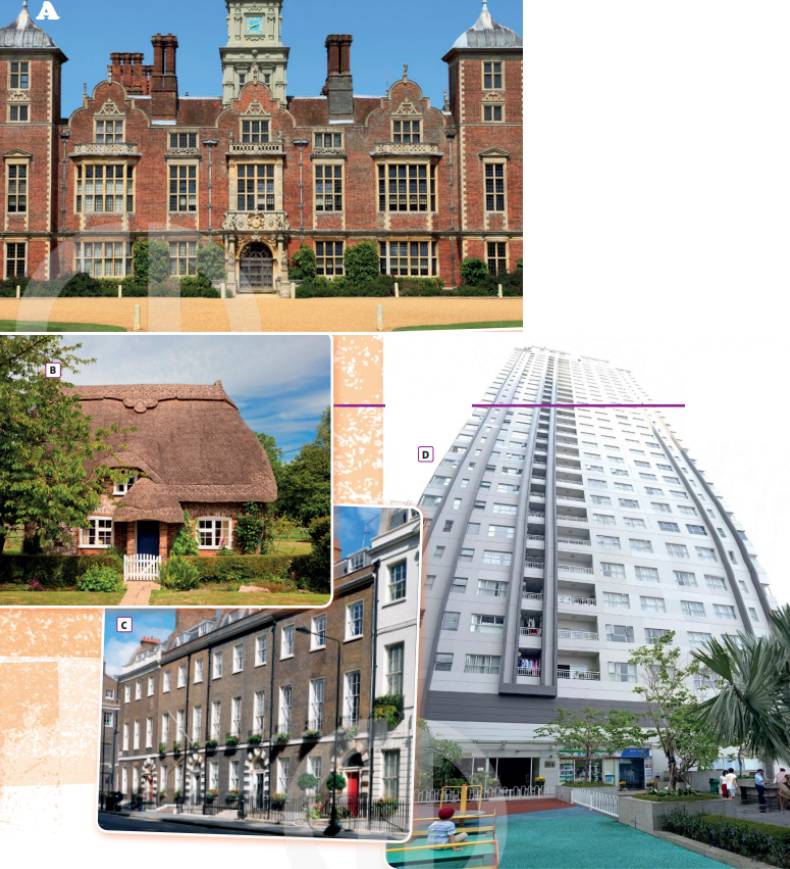Hãy nhập câu hỏi của bạn vào đây, nếu là tài khoản VIP, bạn sẽ được ưu tiên trả lời.

A: What do you usually do on weekends?
B: I often stay at home to recharge my battery after a long week of studying. On Sunday, I usually hang out with my friend at the coffee shop and go to the supermarket to buy some food for the next week.
A: How about this weekend? What are you doing?
B: On Saturday, I’m practicing playing badminton to prepare for the competition at my school.
A: And on Sunday?
B: Well, this Sunday, I'm going to the cinema at Vincom center to watch “Nha Ba Nu” movie with my family. It is a famous family movie. Would you like to come with us?
A: Yes, I’d love to
Tạm dịch:
A: Bạn thường làm gì vào cuối tuần?
B: Tôi thường ở nhà để nạp năng lượng sau một tuần dài học tập. vào Chủ nhật, tôi thường đi uống cà phê với bạn bè và đi siêu thị để mua một số thực phẩm cho tuần tới.
A: Còn cuối tuần này thì sao? Bạn sẽ làm gì thế?
B: Vào thứ Bảy, tôi dự định tập chơi cầu lông để chuẩn bị cho cuộc thi ở trường của tôi.
A: Và vào Chủ nhật?
B: À, chiều Chủ nhật này, tôi sẽ đến rạp chiếu phim ở trung tâm Vincom để xem phim “Nhà Bà Nữ” với gia đình. Đó là một bộ phim gia đình nổi tiếng. Bạn muốn đi cùng chúng tôi không?
A: Vâng, tôi rất thích.

A. mansion (khu nhà lớn)
B. thatched cottage (nhà tranh lợp mái)
C. semi-detached house (nhà liền kề)
D. flat (căn hộ)
A: What type of home do you live in?
(Bạn sống trong loại nhà nào?)
B: I live in a detached house in district 10.
(Tôi sống trong một căn nhà biệt lập ở quận 10.)

A. play bowling: chơi bowling
B. play chess: chơi cờ
C. make video blog: làm video blog
D. go camping: đi cắm trại
E. play musical instrument: chơi nhạc cụ
F. read books: đọc sách

A. salad | B. stew | C. banh mi | D. curry pie |
I like salad because it's good for our skin and suitable for losing weight. I don't like curry pie because I don't like that smell.

*Picture A: tennis court, safety net, sea shore, tower block.
(Hình A: sân tennis, lưới an toàn, bờ biển, tòa tháp.)
*Picture B: flood lights, swimming pool, tower block
(Hình B: đèn pha, bể bơi, tòa tháp)
*Picture C: main road, mountain range
(Hình C: con đường chính, dãy núi)

Location: (Vị trí)
- Ask for advice on neighborhoods that are safe and convenient for commuting to school.
(Xin lời khuyên về những khu vực lân cận an toàn và thuận tiện cho việc đi lại đến trường.)
- Find out what transportation options are available in the area.
(Tìm hiểu những phương tiện giao thông có sẵn trong khu vực.)
Meals: (Các bữa ăn)
- Ask for recommendations on affordable restaurants or cafes nearby.
(Yêu cầu đề xuất về các nhà hàng hoặc quán cà phê giá cả phải chăng gần đó.)
- Inquire about access to a kitchen to cook meals.
(Hỏi về việc sử dụng nhà bếp để nấu các bữa ăn.)
Cost: (Chi phí)
- Ask for advice on how to save money on housing, such as finding a roommate or living in a less expensive area.
(Xin lời khuyên về cách tiết kiệm tiền nhà, chẳng hạn như tìm bạn cùng phòng hoặc sống ở khu vực ít tốn kém hơn.)
- Consider additional expenses such as utilities and transportation.
(Xem xét các chi phí bổ sung như tiện ích và đi lại.)
Sharing with other students:
(Chia sẻ với các học viên khác)
- Consider the benefits and drawbacks of living with roommates, such as splitting the cost of rent but potentially having less privacy.
(Xem xét những lợi ích và hạn chế của việc sống với bạn cùng phòng, chẳng hạn như chia sẻ chi phí thuê nhà nhưng có khả năng có ít quyền riêng tư hơn.)
- Look for resources such as roommate finding websites to help you find a compatible roommate.
(Tìm kiếm các nguồn như trang web tìm bạn cùng phòng để giúp bạn tìm được bạn cùng phòng tương thích.)

Amelia Humfress is a 24-year-old entrepreneur whose aim is to make her own company, Steer, the best in the world for teaching people how to make their own websites. She has decided that it is the courses of Steer that can make it different from other companies. The courses vary from web design to computer coding. They focus more on the learners' chances to experience and practice rather than theoretical lessons. Amelia did not start out setting up such a school. It was when she was looking for a web design course for herself that the idea for the company Steer came to her. Her plan grew slowly. At first, she lacked confidence, but she then found an office where she could start the business. Soon her business grew quickly. Amelia thinks that more young people should start the businesses that they dream about. It is just a lack of confidence, not any other factor that holds them back.
* Nghĩa của ba câu chẻ
- it is the courses of Steer that can make it different from other companies.
(chính các khóa học của Steer có thể làm cho nó khác biệt với các công ty khác.)
- It was when she was looking for a web design course for herself that the idea for the company Steer came to her.
(Chính khi đang tìm kiếm một khóa học thiết kế web cho mình, ý tưởng thành lập công ty Steer đã đến với cô.)
- It is just a lack of confidence, not any other factor that holds them back.
(Đó chỉ là sự thiếu tự tin chứ không phải yếu tố nào khác kìm hãm họ.)

| nuclear family | generation gap |
| hairstyle | school children |
| junk food |
1 . why is there a ..............generation gap.................between parents and children ?
2 . Why are soft drinks and ..........junk food..................not good for our health ?
3 . Do you think .......school children......should wear uniforms ?
4 . Is the .........nuclear family.............the perfect type of family ?
5 . Have your parents ever complained about your ...............hairstyle.................?
Ex 4 : Fill in each blank with the given work
| nuclear family | generation gap |
| hairstyle | school children |
| junk food |
1 . why is there a ................generation gap...............between parents and children ?
2 . Why are soft drinks and ..................junk food..........not good for our health ?
3 . Do you think .......school children......should wear uniforms ?
4 . Is the .............nuclear family.........the perfect type of family ?
5 . Have your parents ever complained about your .................hairstyle ...............?



Benefits of vocational training
(Lợi ích của đào tạo nghề)
Benefits of academic study
(Lợi ích của nghiên cứu học thuật)
- cost less
(chi phí ít hơn)
- develop practical skills
(phát triển kỹ năng thực tế)
- shorter duration of study
(thời gian học ngắn hơn)
- opportunities for immediate employment
(cơ hội có việc làm ngay)
- hands-on learning experience
(trải nghiệm học tập thực tế)
- focuse on job-specific skills
(tập trung vào các kỹ năng cụ thể của công việc)
- opportunities for on-the-job training
(cơ hội được đào tạo trong công việc)
- directly applicable to specific occupations
(áp dụng trực tiếp cho các ngành nghề cụ thể)
- less theory, more practical application
(lý thuyết ít hơn, ứng dụng thực tế hơn)
- promote teamwork and collaboration
(thúc đẩy tinh thần đồng đội và hợp tác)
- can earn more
(có thể kiếm nhiều hơn)
- develop critical thinking skills
(phát triển kỹ năng tư duy phản biện)
- develop research skills
(phát triển kỹ năng nghiên cứu)
- access to a wider range of career paths
(tiếp cận với nhiều con đường sự nghiệp hơn)
- opportunities for academic research
(cơ hội nghiên cứu học thuật)
- provide a broader education
(cung cấp một nền giáo dục rộng lớn hơn)
- opportunity to pursue advanced degrees
(cơ hội theo đuổi bằng cấp cao)
- develops a range of transferable skills
(phát triển một loạt các kỹ năng chuyển nhượng)
- enhances personal and intellectual growth
(tăng cường phát triển cá nhân và trí tuệ)
- builds a strong foundation for future learning
(xây dựng nền tảng vững chắc cho việc học tập trong tương lai)